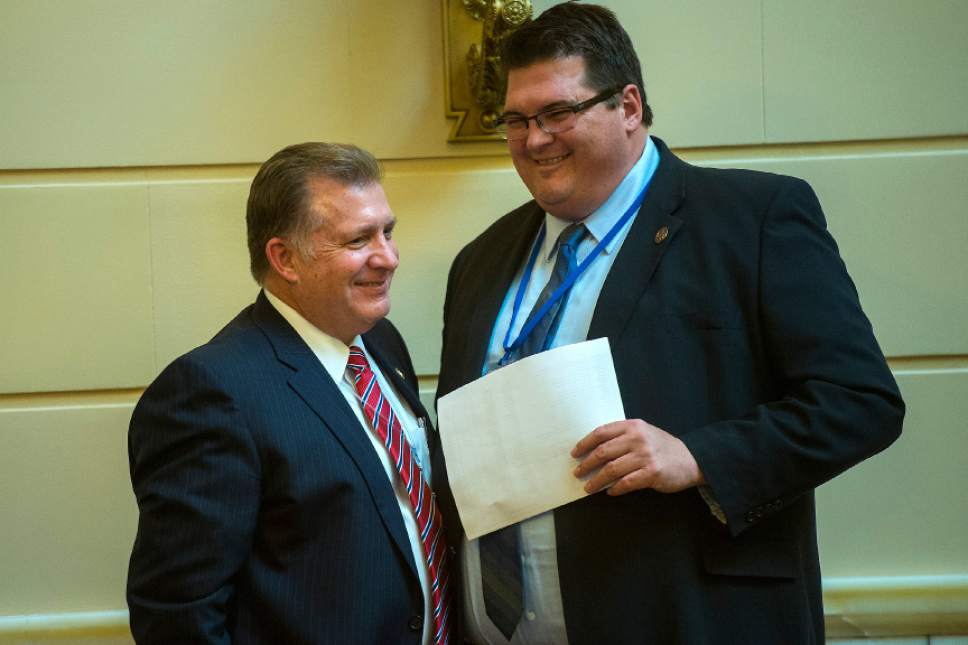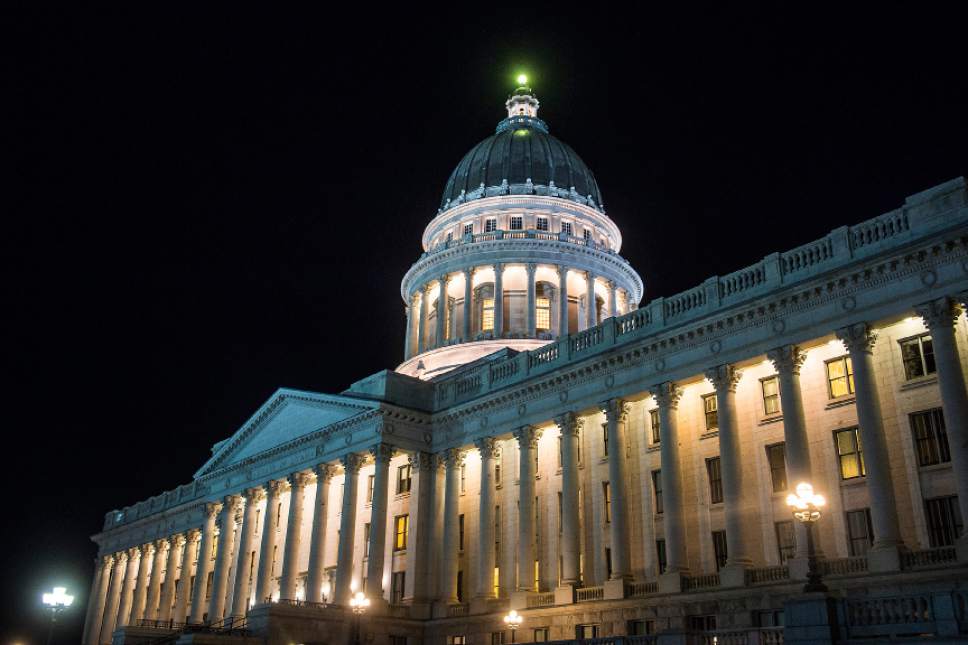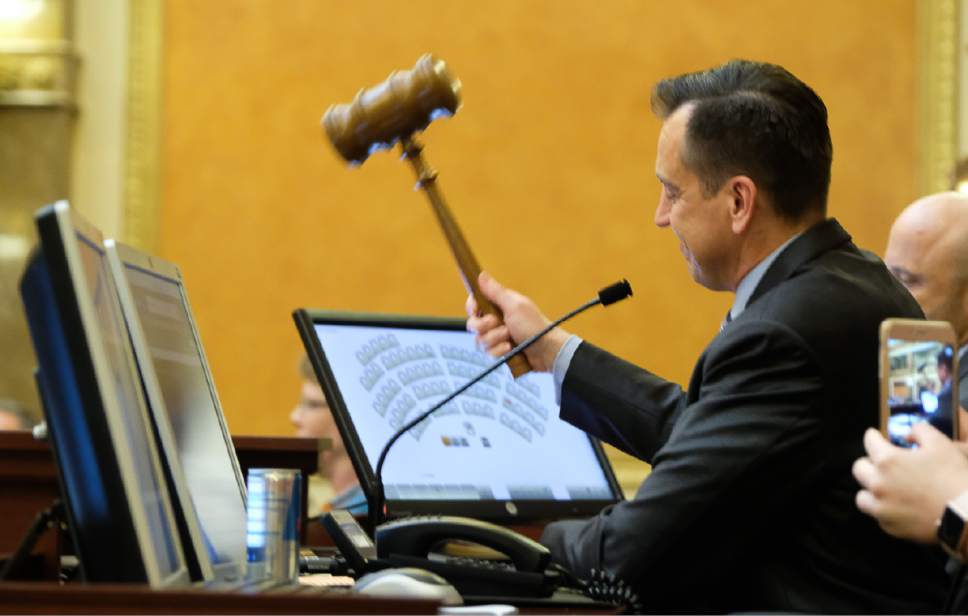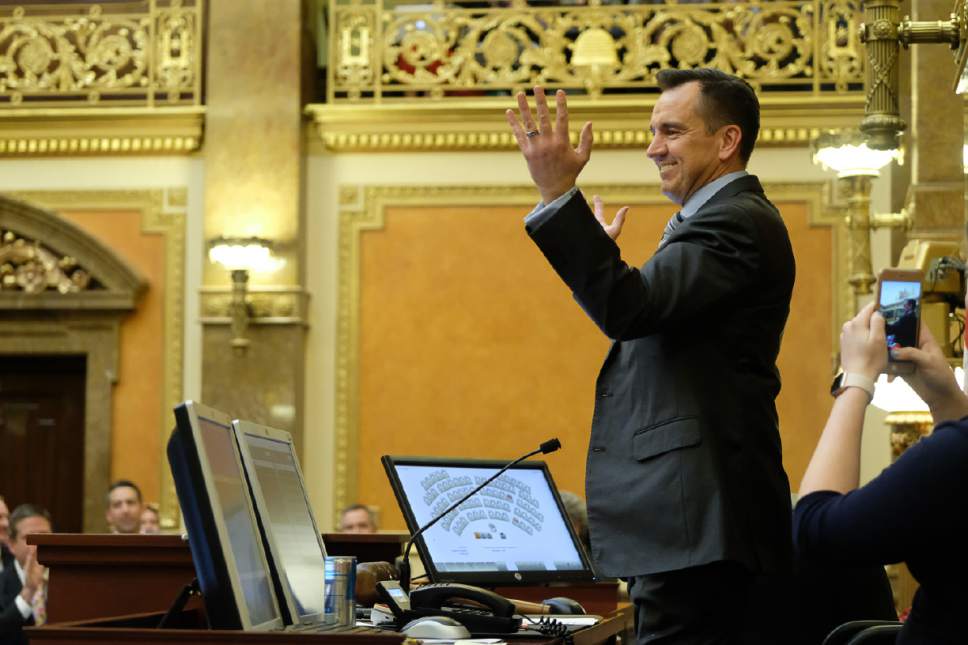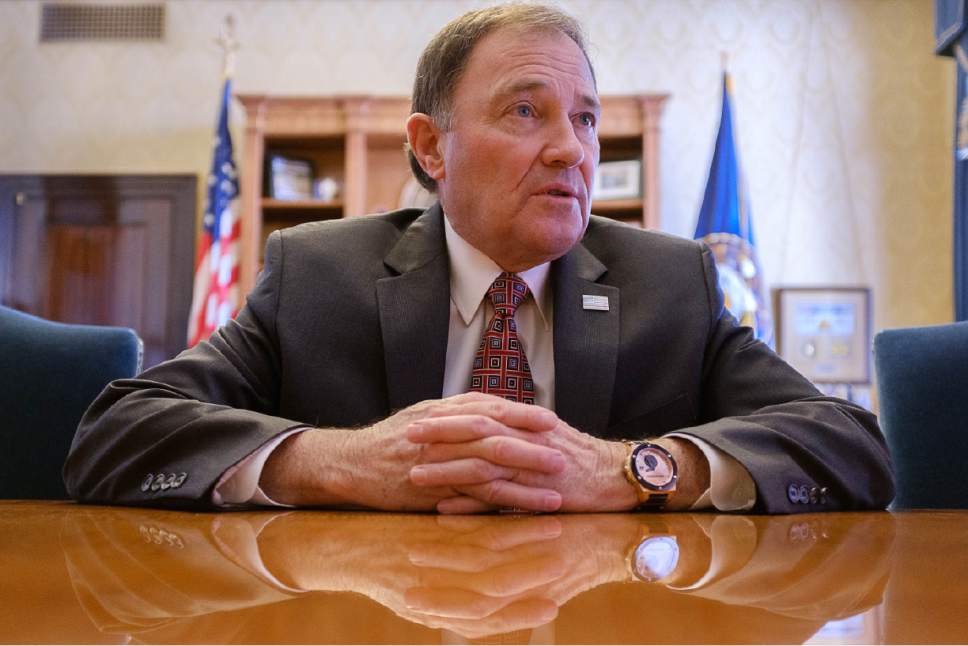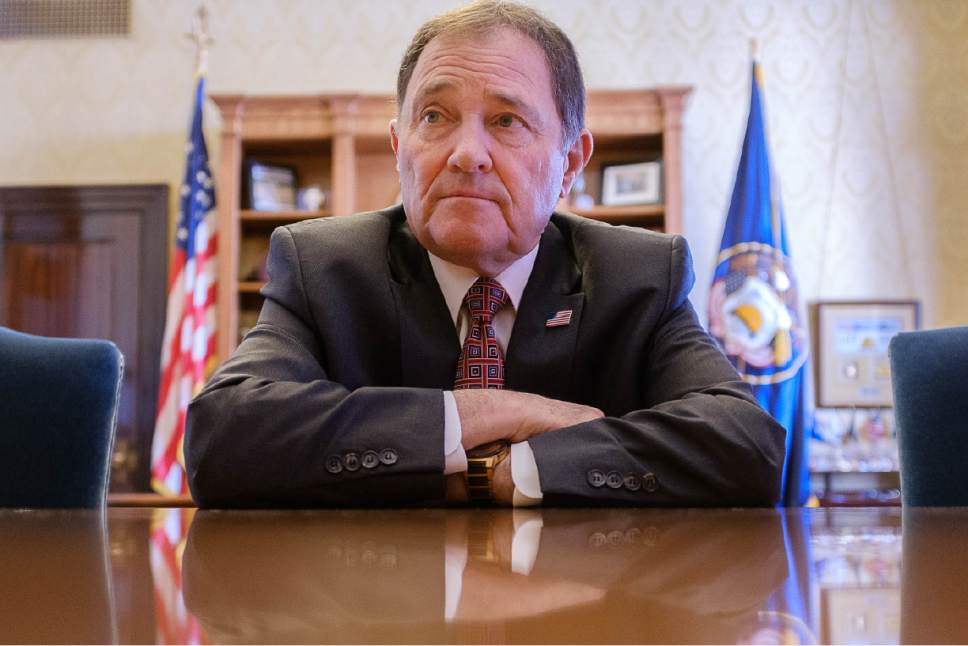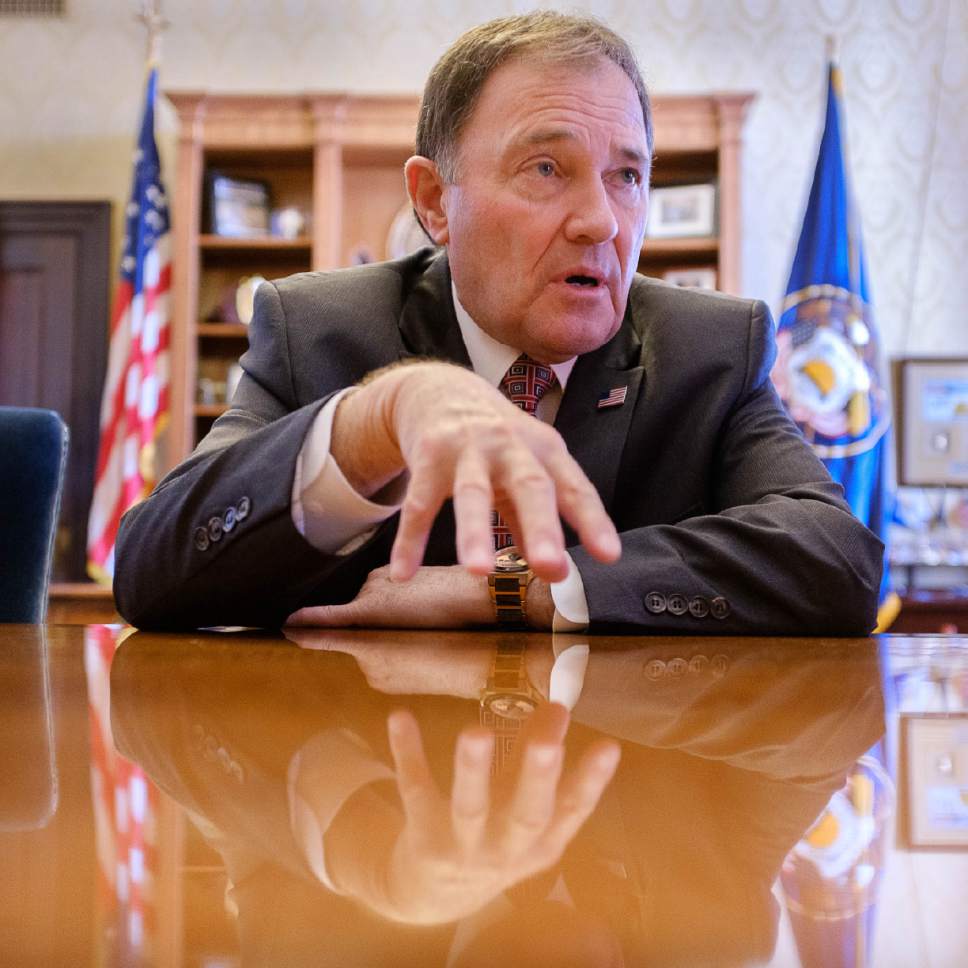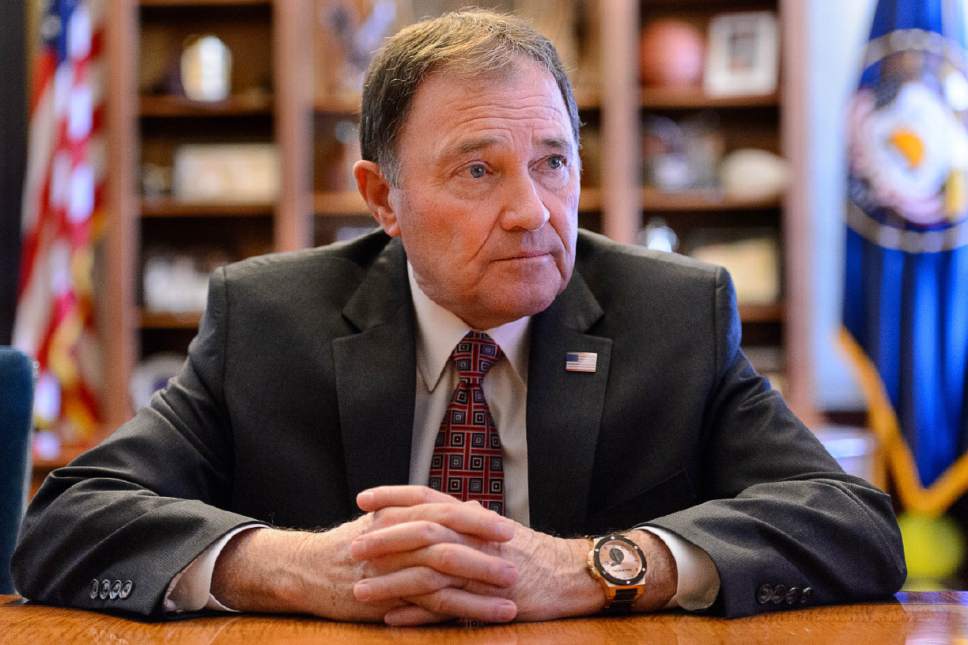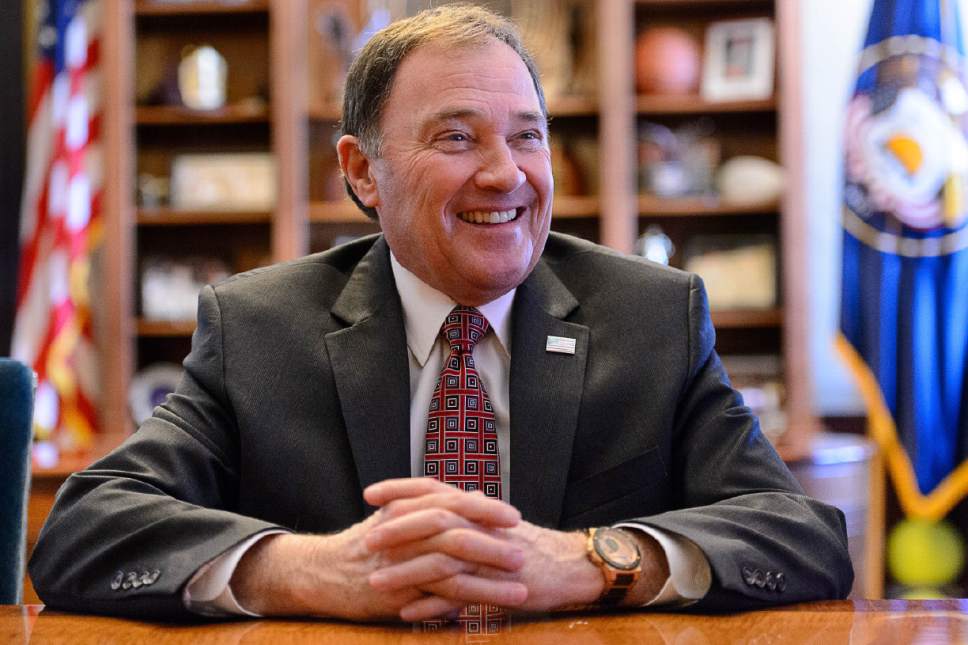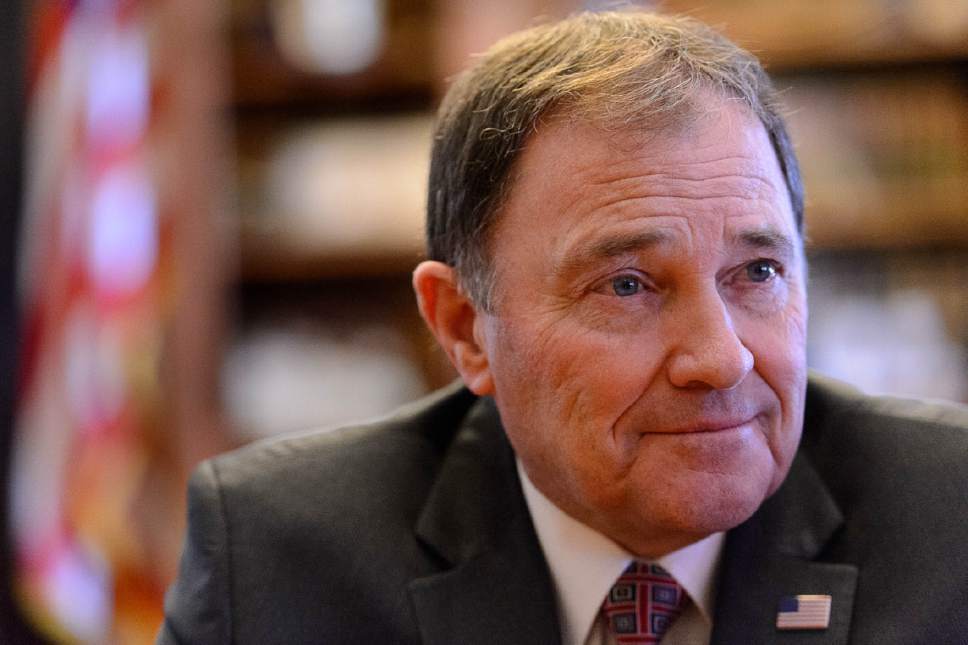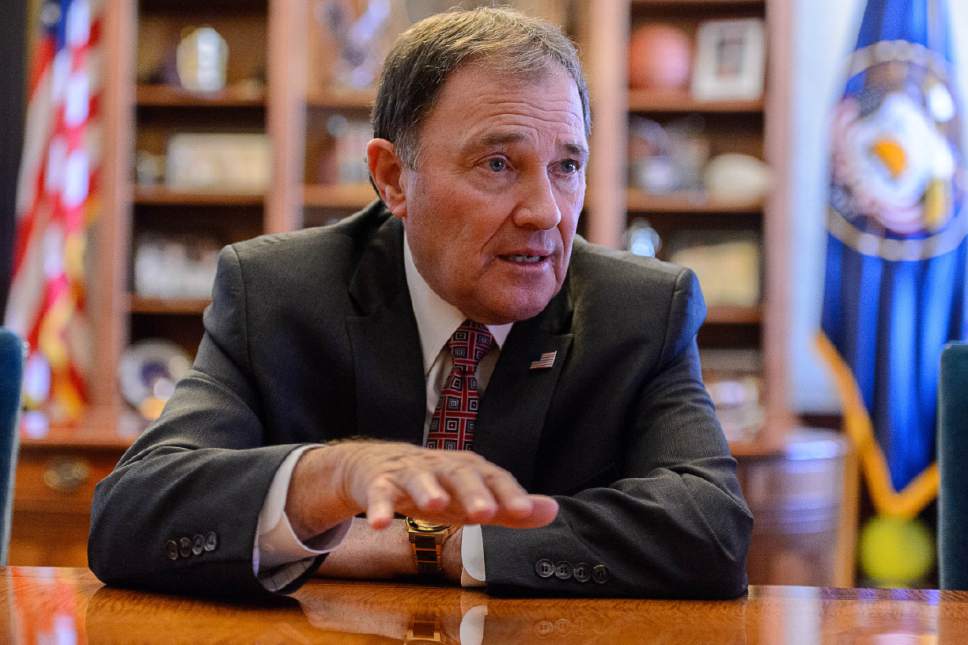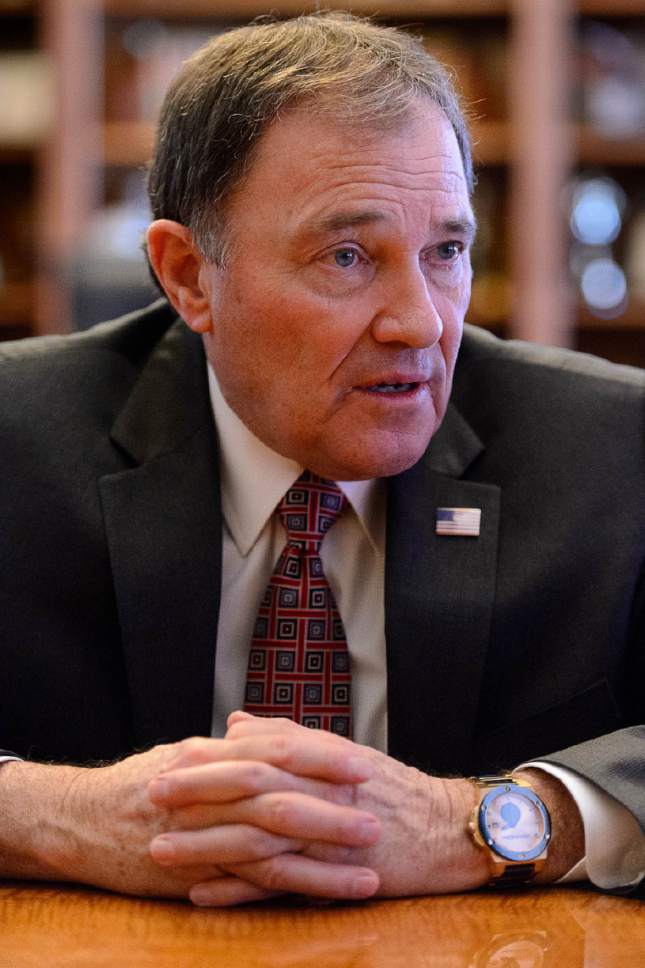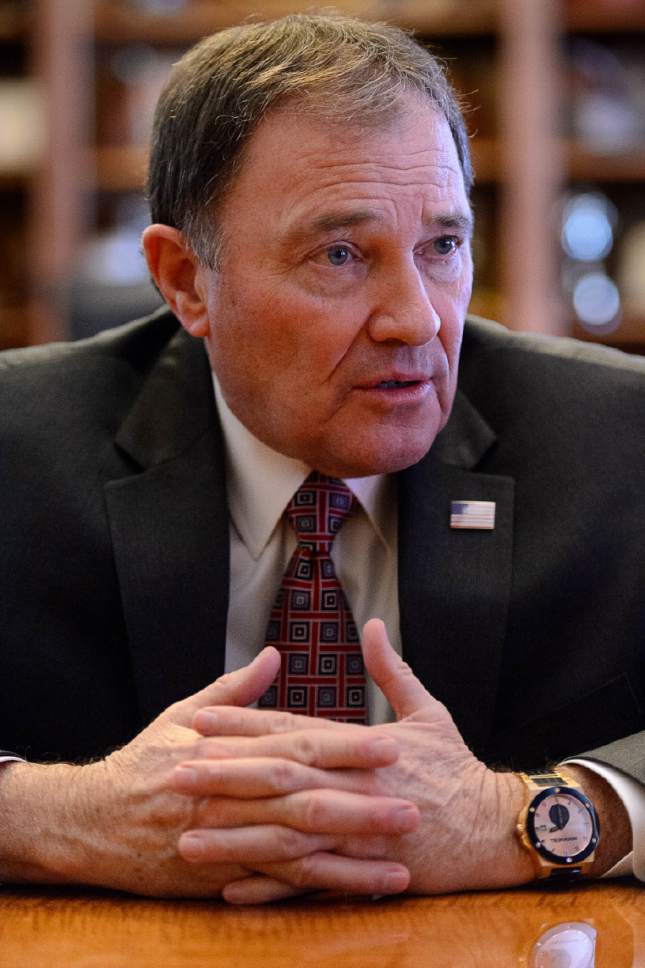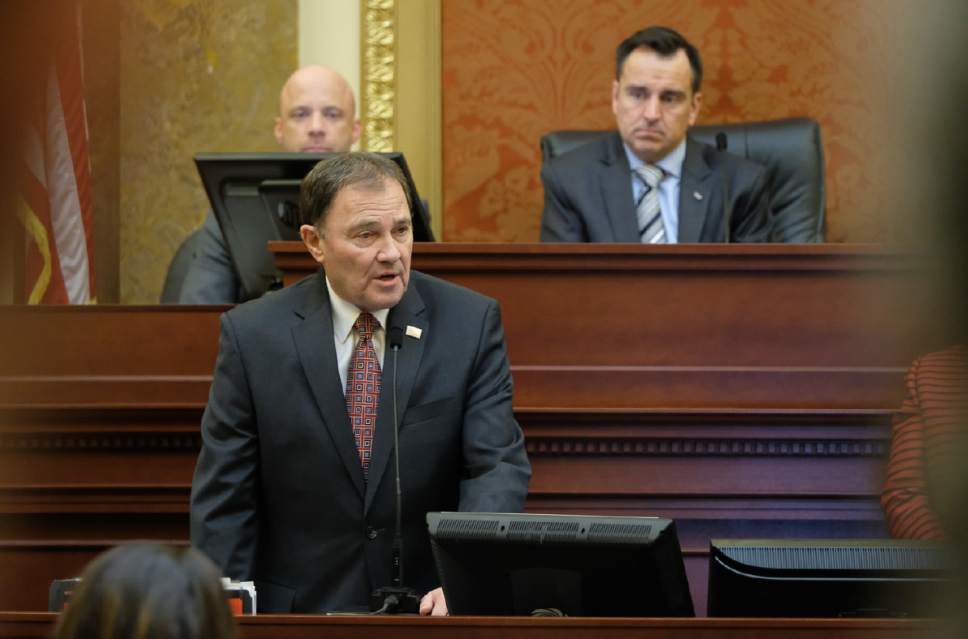This is an archived article that was published on sltrib.com in 2017, and information in the article may be outdated. It is provided only for personal research purposes and may not be reprinted.
The 2017 Utah Legislature, which adjourned late Thursday, might be remembered for playing peekaboo on the biggest, toughest items it faced, including a last-minute surprise on polygamy.
Republican leaders started 45 days ago by announcing big-idea initiatives: fighting homelessness, reforming taxes and eliminating the unpopular "Zion Curtain," the barrier to prevent children from seeing drinks mixed in restaurants.
Those proposals then largely disappeared from public view for weeks, as lawmakers, mostly Republicans, worked behind closed doors to untangle snags among competing interests.
Resulting bills on homelessness and alcohol reform finally emerged late — with some surprises — then rushed toward passage. Tax reform simply died behind closed doors as lawmakers were unable to find workable deals.
Some peekaboo was more of a case of just "boo."
Five minutes before the midnight deadline for adjournment and without a single vote to spare, senators approved 15-14 an anti-bigamy bill. Utah's law has been weakened by court rulings, prompting HB99, which, if signed by the governor, will make it a crime to both cohabitate with and purport to be married to multiple partner.
Other surprises included introducing a bill Monday to issue $100 million more in bonds for the state prison and passing it Tuesday without a hearing. A $1 billion bonding bill for highway projects had its first and only hearing Monday and rushed to final passage the next day.
"From my perspective, the process on that was terrible," said House Minority Leader Brian King, D-Salt Lake City."The majority caucus is deciding stuff without input. And it's not just input from Democrats; it's input from the public."
But House Speaker Greg Hughes, R-Draper, said negotiating behind closed doors was the only way to bring together dozens of competing interests on gnarly issues, and noted hearings generally were held on almost-final products to involve the public.
"There were a lot of steps forward, but then a lot of steps backward" in negotiations, Hughes said. "If we were to narrate every move ... if we were doing this in the public eye, the fear is that people may get offended" and walk away from the process.
He added, "We hope we had the public hearings and the process [so] that the public felt like it knew what was going on. I'm just happy that we got it done [on homelessness and liquor reform]. There were times I didn't know if that was going to happen."
Gov. Gary Herbert also said private meetings are sometimes needed, and noted the Founding Fathers met behind closed doors when they "created the best document in the history of the world: our Constitution."
He said, "Sometimes they want to get things ferreted out and on the table and have frank and open discussion" that is not possible in public. Herbert praised this year's results, from education funding increases to alcohol reform and addressing homelessness.
"This session should be the model for what we ought to do," Herbert said. "This is an example of uniting and focusing on important issues and delivering very good results."
Senate President Wayne Niederhauser, R-Sandy, also praised the session's accomplishments. "We got an alcohol bill passed, we got the 0.05 [blood-alcohol content limit] passed, we've come together on an almost unanimous vote with the bonding bill."
The effort to address homelessness showed some of this year's peek-and-boo maneuvers. Hughes used his opening speech to make it his top priority. It took a month before leaders held a news conference to announce deals made behind closed doors.
Salt Lake City would host two new homeless resource centers instead of four, and a controversial one in Sugar House was eliminated. Salt Lake County would host a third outside Salt Lake City. The Rio Grande homeless shelter would be phased out.
Weeks later, when a key bill to implement that was finally released, it had another surprise: Provisions would allow Salt Lake County to locate a shelter in a city that may not want it.
Similar maneuvers came with the Zion Curtain bill. House Minority Leader Brad Wilson, R-Kaysville, announced plans to eliminate the Zion Curtain on the second day of the Legislature. It took more than a month to release a bill as he worked on objections.
Then it didn't eliminate the curtain. It added other options instead.
Even when lawmakers conducted a fairly open move for resolutions calling for President Donald Trump to rescind the Bears Ears and Grand Staircase-Escalante national monuments, they ran into complaints that they were shutting out public comment.
The House Rules Committee held a quick, lightly attended hearing. But Democrats complained it violated rules at the time (later changed) where that committee is not supposed to hold hearings on policy issues. Its chairman, Rep. Mike Noel, R-Kanab, happens to be leader of the anti-Bears Ears movement.
Republicans decided they had erred and held a second hearing, which attracted huge overflow crowds filled with opponents.
Members of another group saying they were largely shut out of the legislative process this year were women activists. On the opening day of the Legislature, more than 10,000 women marched at the Capitol to call for better treatment — and to protest Trump.
Despite that, "We believe women's voices were ignored" with a few small exceptions, said Chelsea Shields, executive director of Utah Women Unite.
She said women helped stop or weaken some abortion measures. But they had a long list of issues they say were given short shrift. For example, a bill to resurrect the Equal Rights Amendment never had a hearing. A proposal to remove taxes on feminine hygiene projects had a hearing, but was quickly killed.
Shields said it repeated past poor treatment. "I don't think that we should be surprised the way women were treated because these are the same people we have been voting for session after session after session."


